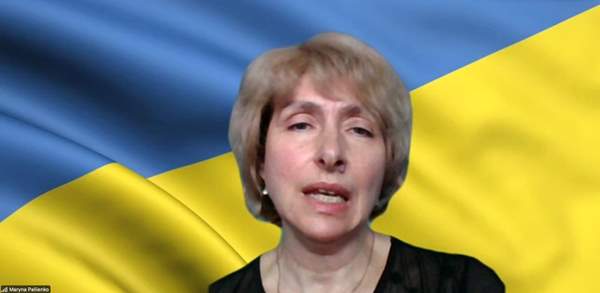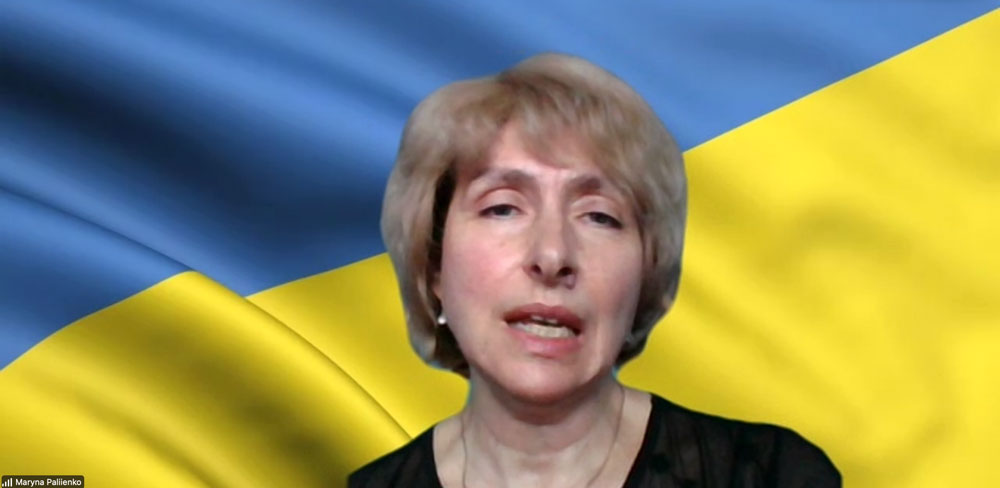
Live from the Ukraine: how to protect the archives in the times of war?

"Archivists are currently most concerned about the destruction of unique and irreplaceable archival documents or, worse, the potential capture of documents by Russian forces. Russia has been exporting Ukrainian cultural property for centuries in a stepmotherly manner and confiscating archival documents that are useful for its operational use, "explained dr. Maryna Paliienko, who reported live from Ukraine.
Dr. Maryna Paliienko, head of the archives department at Taras Schevchenko University in Kiev, Ukraine, with which Alma Mater Europaea - ECM has been working for many years, spoke about the threats and dangers threatening Ukrainian archives in the current war and during the Russian aggression.
She highlighted the importance of archives because of their rich collection and cultural heritage and the importance of unrestricted access to them for all researchers who are the driving force behind the once prosperous country.
"We are watching the daily events in Ukraine with horror in our eyes. It is a great honor for us that today, that despite the whole situation, dr. Maryna Paliienko managed to attend the event, "said assoc. prof. dr. Peter Pavel Klasinc, Archival Adviser and Study dean of Archival Sciences at Alma Mater Europaea – ECM.
Let us recall that during constant rocket attacks and bombing by Russia, several culturally important buildings were destroyed, including Freedom Square in Kharkiv, considered the largest square in Europe, the library in Chernigov and on Thursday, March 10, 2022, also the State Archives of the Kharkiv region. Despite dangerous conditions, archivists in Ukraine work at archive sites, and some continue to work from home. Ukrainian archivists, together with librarians, researchers and programmers, have established the SUCHO (Saving Ukrainian Cultural Heritage Online) group, aimed at preserving and protecting nationally important archival content. They reiterated the importance of establishing a no-fly zone that would protect not only the people but also the cultural heritage of the Ukrainian nation.
"Stop bombing before cities become cemeteries," said Paliienko in her closing remarks.
The conference, which is the largest scientific event in Slovenia and will last until March 18, 2022, will feature 60 panels and round tables with more than 250 speakers in the fields of health, medicine, social gerontology, social work, law, education, psychology, psychotherapy, communications, archiving, informatics, philosophy and humanities. The conference is attended annually by world science leaders, often professors from universities such as Harvard, Cambridge, Oxford, Columbia and others.
Alma Mater Europaea has 1,600 students in 28 study programs at doctoral, master's and undergraduate levels. It boasts the highest employability of graduates among universities and faculties in Slovenia. “All students participate in the conference. Doctoral students present their research, master's students prepare and publish reviews, and undergraduate students write summaries of papers, ”said dr. Sebastjan Kristovič, coordinator of the study process.
The European Academy of Sciences and Arts is an association of 2,000 scientists, including 33 Nobel Prize winners. The academy is based in Salzburg.



